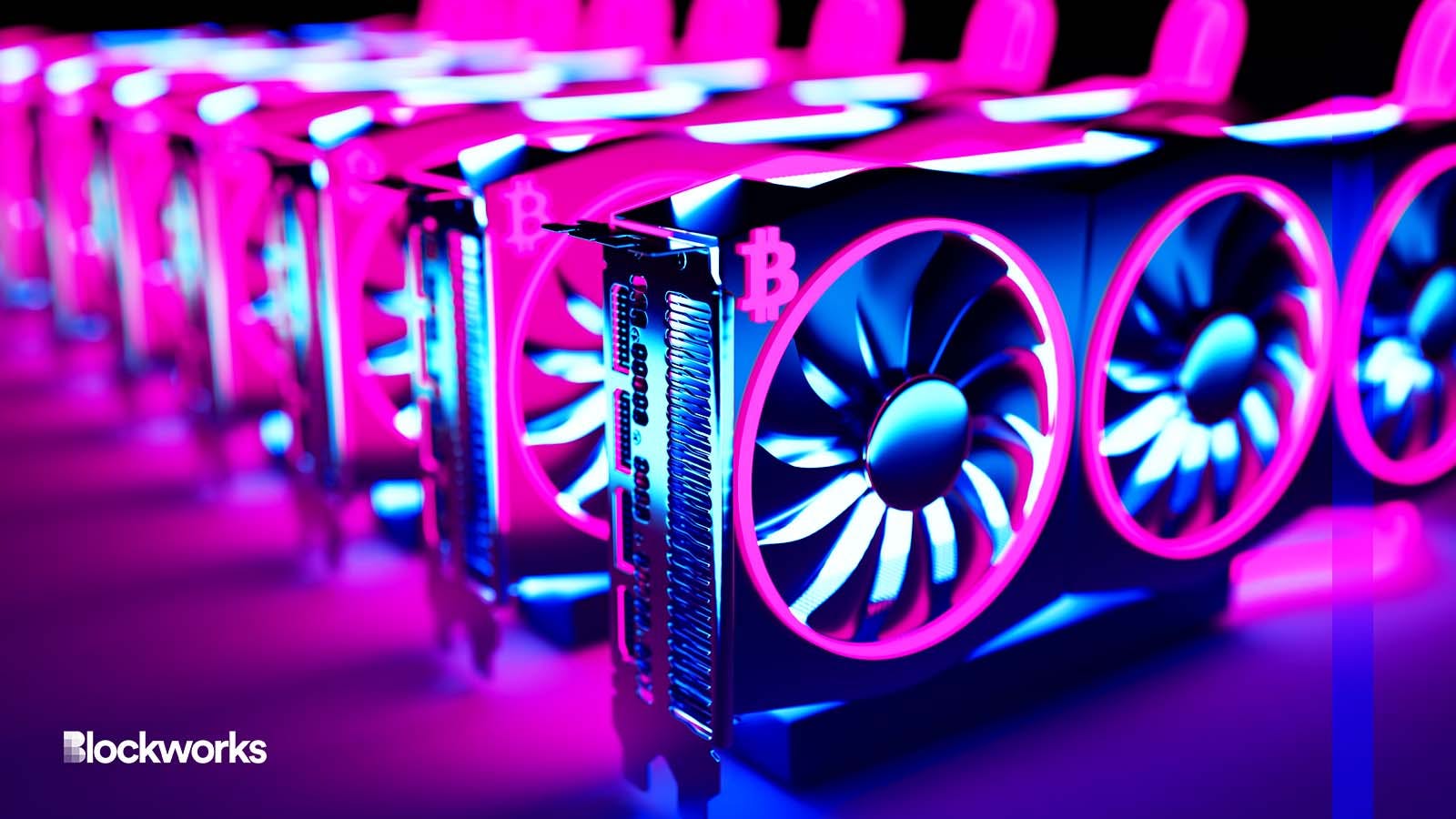Bitcoin miners are pivoting to new markets and making bank
With a pivot to providing high-performance computing, miners are finding new ways to broaden their revenue stream

GreenBelka/Shutterstock modified by Blockworks
Avi Felman says he’s bullish on bitcoin miners, but not strictly because of bitcoin’s potential.
With a pivot to providing high-performance computing, or HPC, companies are finding new ways to broaden their revenue stream beyond ASIC mining.
Hut 8, best known as a bitcoin mining company with facilities in Alberta, Canada and Texas, is a great example, he says. Thanks to its high capacity computing infrastructure, Hut 8 recently signed a contract to provide HPC for clients in Canada’s health sector.
On a recent 1000X podcast (Spotify/Apple), the head of digital asset trading at GoldenTree talks to Cumberland’s Global Head of Trading Jonah Van Bourg about the broadening revenue strategy.
It’s not about the hardware
With the growing potential for more cash flow, one might expect mining companies to pack up their ASICs for greener pastures, leaving the precarious business of crypto mining and its knife-edge profit margins behind.
But it’s not about the chips, Felman says, “it’s a completely different business.”
It’s more about access to the facilities and the people who know the business, Felman says. Cooling, for example, is important in any high capacity computing environment, he says. “In both bitcoin mining and HPC, they have all of that set up.”
“They have the people that know how to build out those services. They have the warehouses and the facilities. They have the power contracts.”
Read more: Do you bleed enough BTC to pay $55 for Brooklyn’s bitcoin spa?
The actual product that is provided to clients, Felman explains, “is radically different and requires a decent amount of upfront investment. But the overall operations are very similar,” he says.
Large-scale mining companies like Hut 8, Iris Energy, Hive and Cipher can repurpose facilities to provide HPC, diversifying the business and generating more revenue, Felman says. “It seems like there’s a tremendous amount of demand.”
A healthier bitcoin market, to boot
Felman clarifies that current ASIC hardware — highly specialized computers designed strictly for bitcoin mining — can not be diverted for the purpose of providing HPC to clients. But the diversification of services provided through their infrastructure and know-how could enable mining companies to be financially “healthier,” he says.
The move could also benefit the market price of bitcoin (BTC), he argues, because miners may be less pressured to sell in fearful markets. The need for mining companies to sell their fresh bitcoin on a regular basis just to survive acts as a constant damper on prices.
“Miners will get liquidated less often as they become better and more robust businesses.”
Van Bourg adds, “it would make the market healthier, for sure.”
“It would also tell the world,” he says, “crypto has provided a series of infrastructure plays that are relevant outside of just crypto.”
The move indicates the presence of a growing market for “purpose-specific computation facilities,” Van Bourg says. Bitcoin mining technology, he says, “laid the rails for other applications” that can now harness the technology in new ways.
Get the news in your inbox. Explore Blockworks newsletters:
- The Breakdown: Decoding crypto and the markets. Daily.
- 0xResearch: Alpha in your inbox. Think like an analyst.






